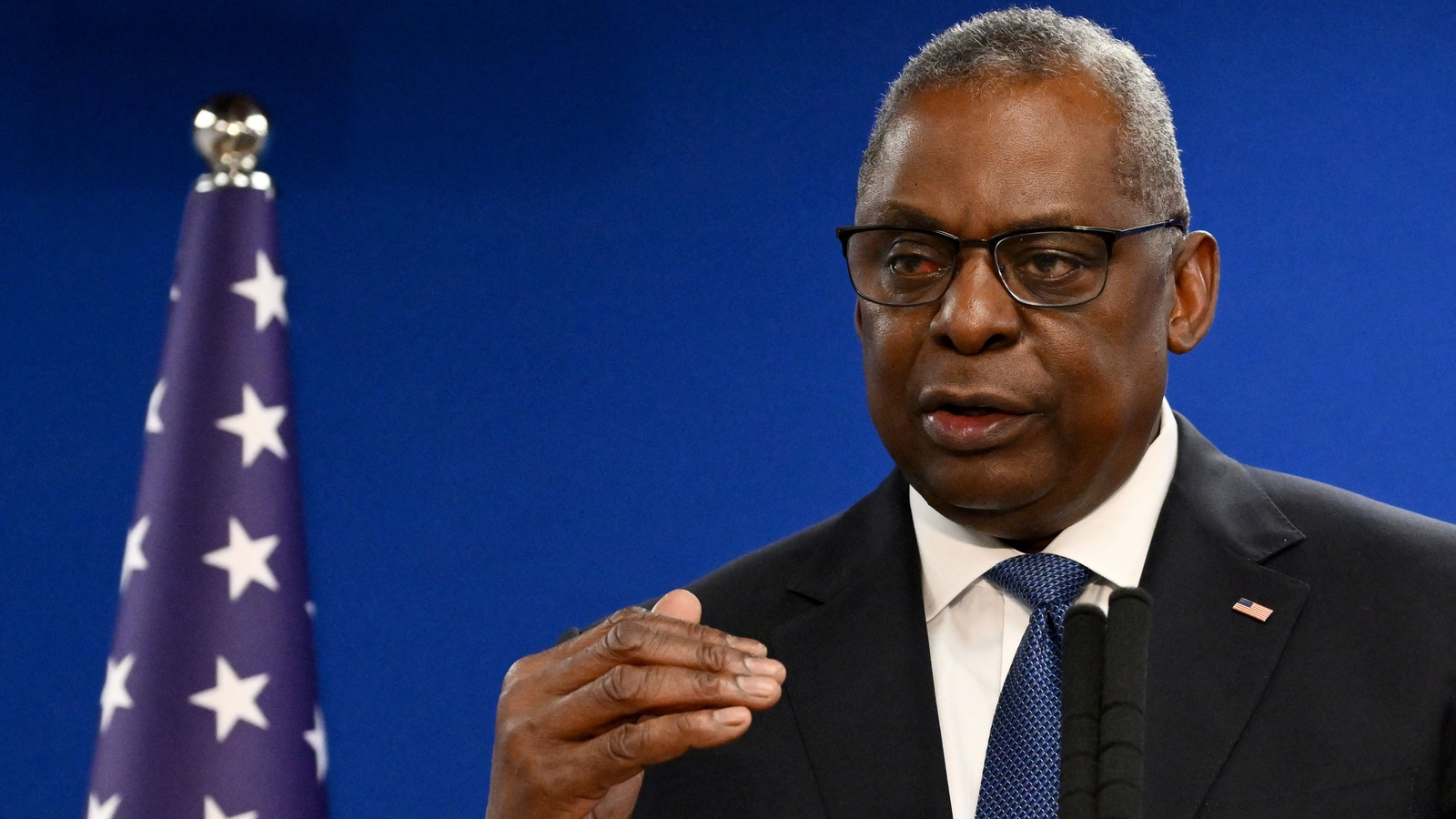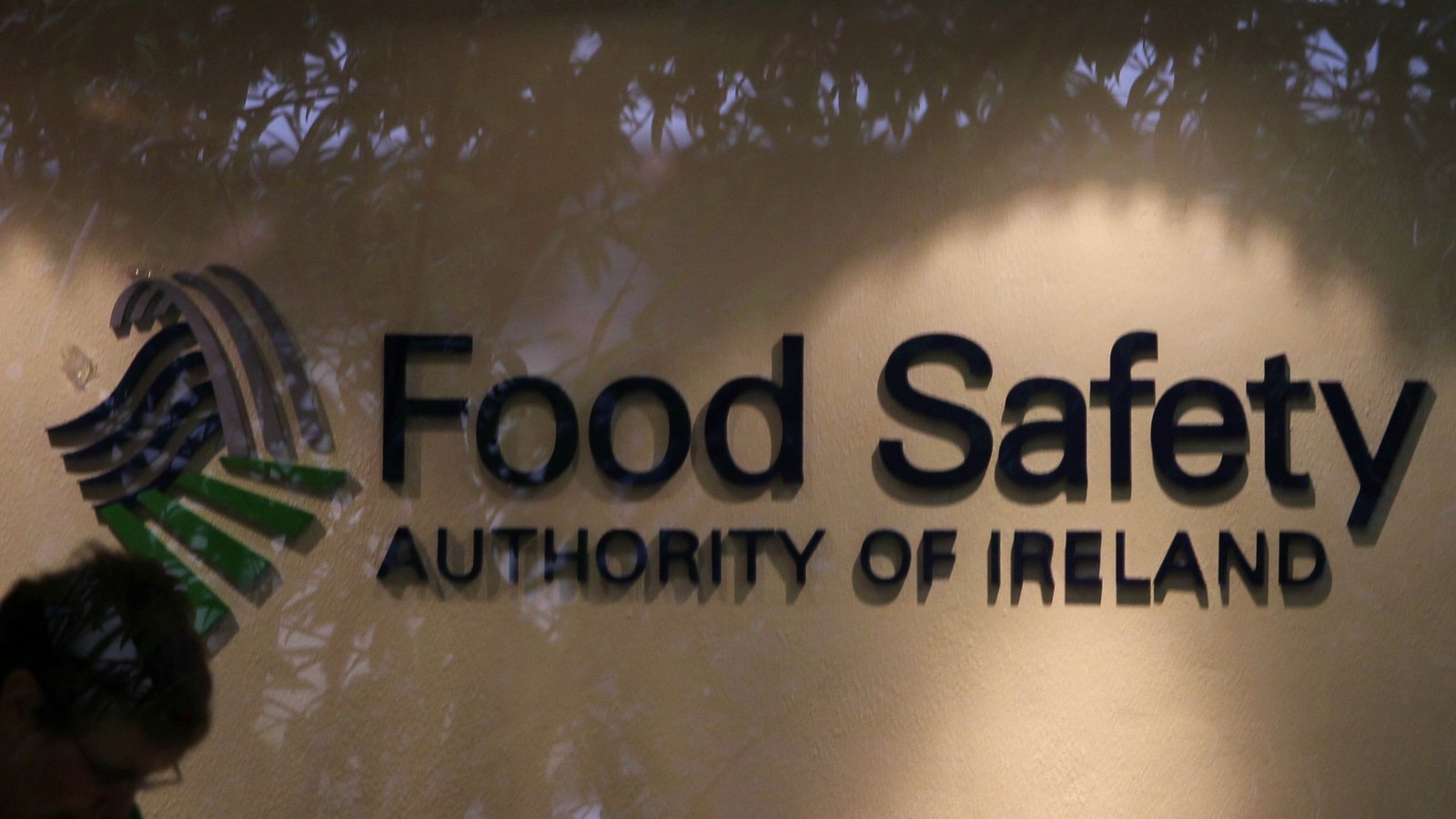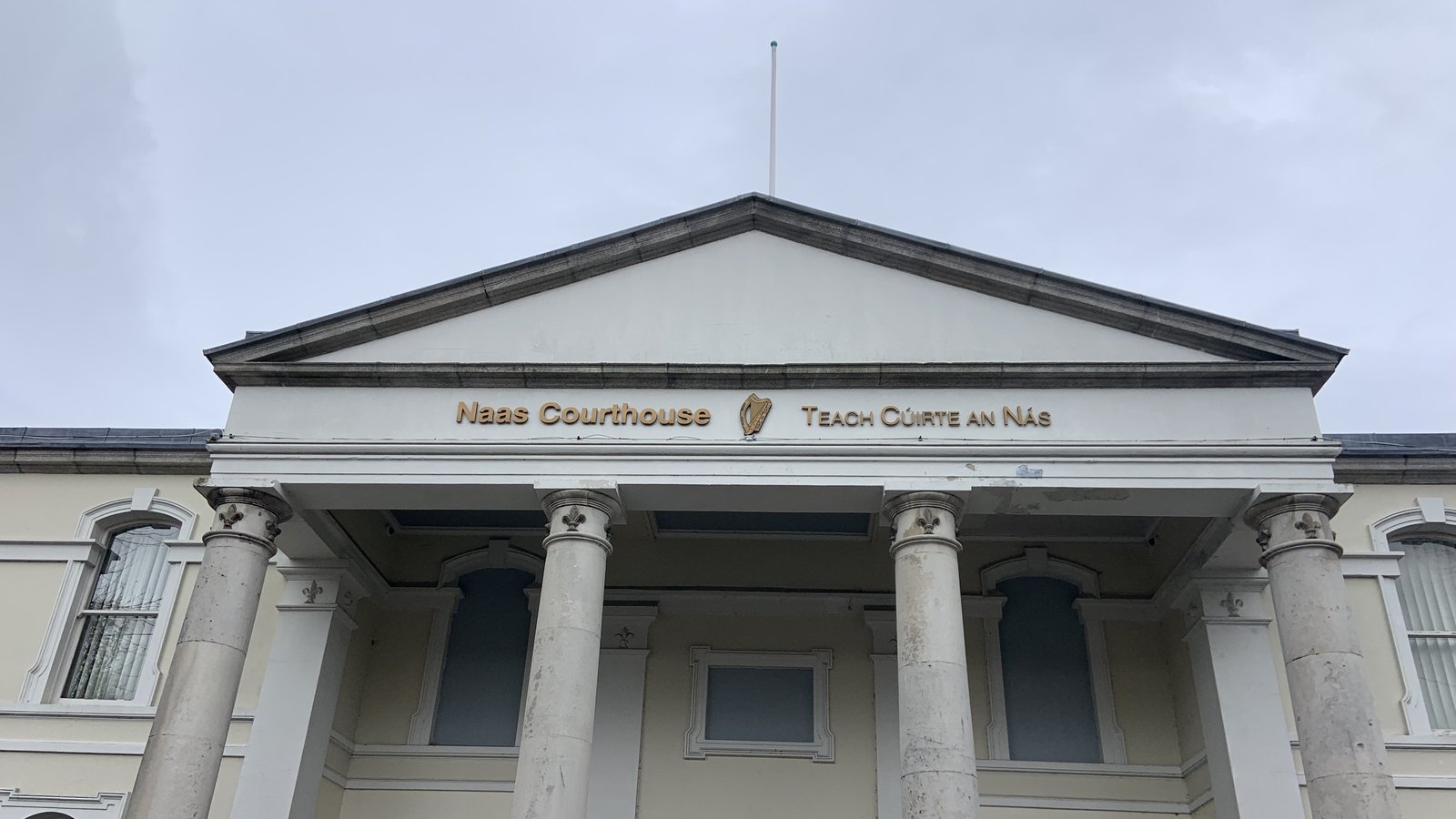Israel, Hamas dampen hopes for speedy Gaza truce deal
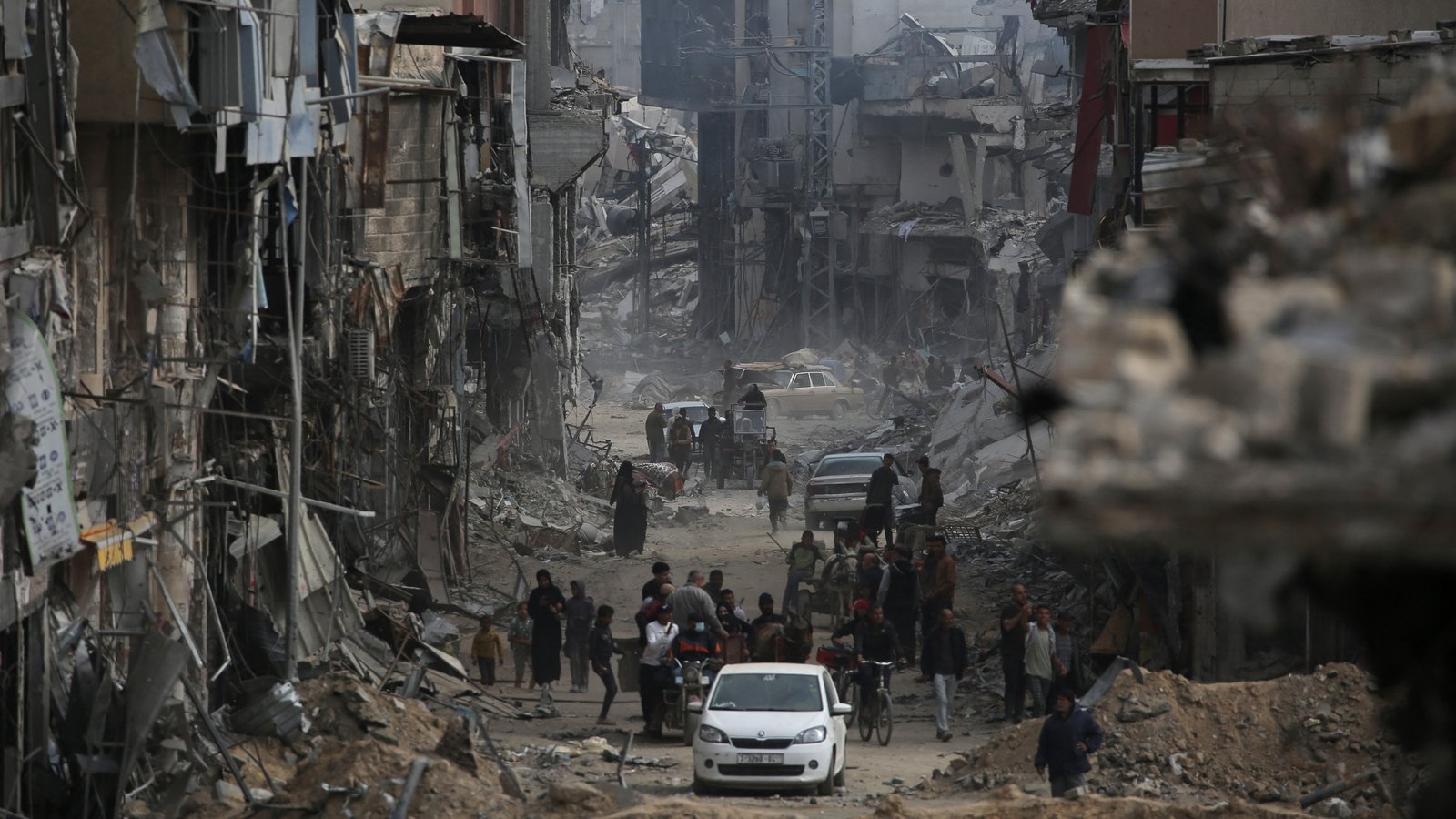
Israel and Hamas have both dampened hopes of a speedy breakthrough in Cairo talks towards a Gaza truce and hostage release deal, after Egyptian state-linked media had reported “significant progress”.
As the Gaza war raged on into a seventh month, Israel is under growing international pressure to agree to a ceasefire, including from its top ally and arms supplier the United States.
Prime Minister Benjamin Netanyahu insisted yesterday – six months after the 7 October attack – that Israel is “one step away from victory” and has vowed to defeat remaining Hamas fighters in Gaza’s far-southern Rafah city.
On the same day however, the army also announced it had pulled its forces out of southern Gaza, although military commanders stressed the withdrawal was tactical and did not signal an end to the war.
Defence Minister Yoav Gallant said the troops would “prepare for future missions, including … in Rafah” on the Egyptian border where almost 1.5 million Gazans live in crowded shelters and tents.
Amid the threats and ongoing fighting, Mr Netanyahu has sent negotiators to fresh truce talks that started yesterday in Cairo, joined by US, Qatari and Egyptian mediators.
We need your consent to load this rte-player contentWe use rte-player to manage extra content that can set cookies on your device and collect data about your activity. Please review their details and accept them to load the content.Manage Preferences
US President Joe Biden sent CIA chief Bill Burns to the talks, three days after a terse phone call with Mr Netanyahu, in which Mr Biden demanded a halt to the fighting and greater steps to help and protect Gaza civilians.
Egypt’s state-linked news outlet Al-Qahera reported “significant progress being made on several contentious points of agreement”, citing an unnamed high-ranking Egyptian source.
The Qatari and Hamas delegations had left Cairo and were expected to return “within two days to finalise the terms of the agreement”, it said, while the US and Israeli teams were also planning 48 hours of consultations.
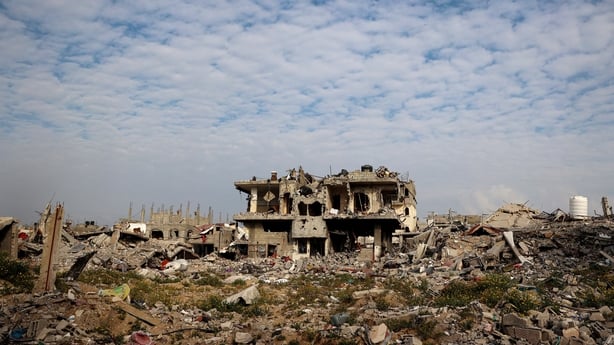
However, Israel’s Ynet news outlet cited an unidentified Israeli official as tempering the upbeat Egyptian report and stressing that “we still don’t see a deal on the horizon”.
“The distance is still great and there has been nothing dramatic in the meantime,” the Israeli official was quoted as saying by the Hebrew-language website.
A separate senior Israeli official was quoted by Ynet as saying that “patience is needed”.
“There is potential, but we are not there yet.”
A senior Hamas official meanwhile told AFP that “we cannot speak of concrete progress so far”, with disagreement centred on the pace of displaced Palestinians returning to Gaza City in the north.
Mr Netanyahu also faced pushback from one of the far-right allies he needs to maintain a parliamentary majority and stay in power, National Security Minister Itamar Ben Gvir.
In a social media post, Mr Ben Gvir warned that “if the prime minister decides to end the war without an extensive attack on Rafah in order to defeat Hamas, he will not have a mandate to continue serving as prime minister”.
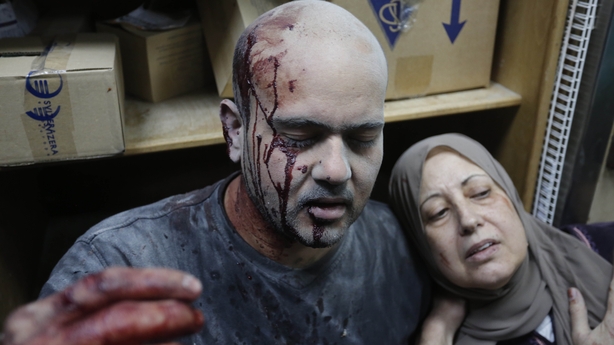
The war was sparked by the 7 October attack against Israel by Hamas militants that resulted in the deaths of 1,170 people, mostly civilians, Israeli figures show.
Palestinian militants also took more than 250 Israeli and foreign hostages, 129 of whom remain in Gaza, including 34 the army says are dead.
Thousands of protesters gathered yesterday in front of Israel’s parliament to demand the return of the captives.
“Stay strong, you who are still there,” cried 17-year-old former hostage Agam Goldstein with tears in her eyes.
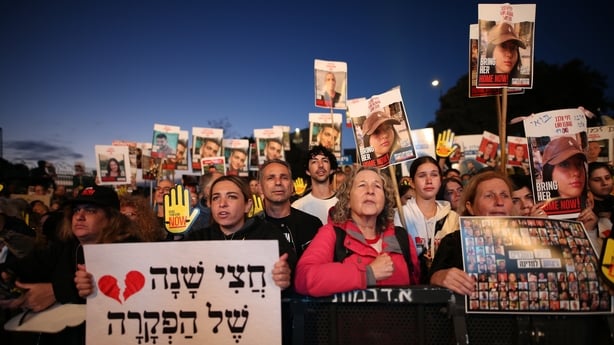
Israel’s retaliatory offensive has killed at least 33,207 people in Gaza, mostly women and children, according to the health ministry in the Hamas-run territory.
A siege has deprived Gazans of most water, food and other basic supplies – the dire shortages only eased by aid trucks and, in recent weeks, airdropped relief supplies.
Vast areas of Gaza have been turned into a rubble-strewn wasteland, with damage to infrastructure, mostly housing, estimated at $18.5 billion, a World Bank report said.
An Israeli drone strike on 1 April killed seven aid workers for the US-based food charity World Central Kitchen, prompting Mr Biden to hint at making US support for Israel conditional on boosting protections for civilians and improving humanitarian conditions.
Charities have accused Israel of blocking aid, but Israel has defended its efforts and blamed shortages on aid organisations’ inability to distribute assistance once it gets in.
“The denial of basic needs – food, fuel, sanitation, shelter, security and health care – is inhumane and intolerable,” World Health Organization chief Tedros Adhanom Ghebreyesus wrote on social media platform X.
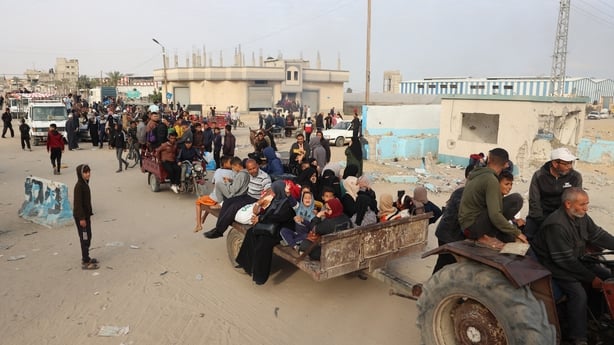
Medical supplies were delivered for the first time through Israel’s Erez border point with northern Gaza, AFPTV footage showed.
Yesterday, after Israeli forces left Khan Younis, displaced Palestinians streamed back there, stunned by the level of destruction.
“We don’t have a city anymore – only rubble,” said Maha Thaer, a mother of four, as she walked among the charred ruins.
“There is absolutely nothing left. I could not stop myself crying as I walked through the streets,” said the 38-year-old, whose home was partially destroyed.
“All the streets have been bulldozed. And the smell… I watched people digging and bringing out the bodies.”
She said she would nonetheless move back into her badly damaged apartment because although “it is not suitable for living… it is better than a tent”.
Read more: What military support does the US provide to Israel?
As the war in Gaza has raged on, the wider Middle East has seen a surge of violence involving Iran-backed militant groups in Lebanon, Syria, Iraq and Yemen.
Israel was widely blamed for a strike early last week on the consulate building in Syria of Iran, sparking threats or retaliation from Tehran.
An adviser to Iran’s supreme leader Ali Khamenei has warned that Israeli embassies were “no longer safe” after the strike in Syria that killed seven Revolutionary Guards members.
Mr Gallant said Israel was ready after the army had “finished all its preparations to react to any scenario that could arise regarding Iran”.
The Israeli army also said it had reached “another phase” of preparation on its northern border with Lebanon, where it has traded fire with Iran-backed Hezbollah for months.
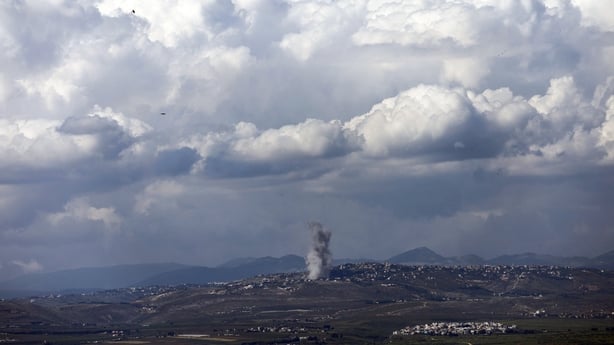
The Israeli military said it had killed a Hezbollah commander, Ali Ahmed Hussein of the elite Radwan Forces, in an overnight air strike in the area of Sultaniyeh in southern Lebanon.
United Nations officials said that six months of violence on the Israel-Lebanon border “must stop”, urging de-escalation “while there is still space for diplomacy”.
Israel’s 98th commando division withdrew from Khan Younis and left Gaza “in order to recuperate and prepare for future operations,” the army said.


